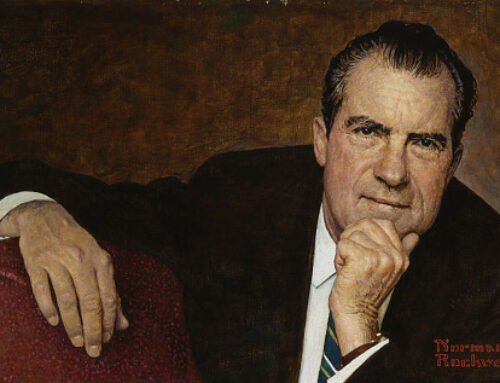Warren G. Harding was the 29th President of the United States, serving from 1921 to 1923. He was born in Corsica, Ohio, in 1865, and grew up in a politically active family. After completing his studies at Ohio Central College, Harding entered the newspaper business and became a successful publisher.
In the early 1900s, Harding entered politics and quickly rose through the ranks. He served as a state senator and later as Lieutenant Governor of Ohio. In 1920, he was nominated as the Republican candidate for President, and he defeated his Democratic opponent, James M. Cox, in a landslide victory.
As President, Harding is perhaps best known for his efforts to promote economic growth and return the country to normalcy after the turmoil of World War I. He signed the Emergency Tariff Act, which raised tariffs on imported goods, and he also signed the Budget and Accounting Act, which established the federal budget process.
Despite these accomplishments, Harding’s presidency was marked by controversy and scandal. Several members of his administration, including his Attorney General, were involved in corruption scandals, and Harding himself faced criticism for his lack of leadership and his conduct.
In 1923, Harding fell ill during a trip to Alaska and passed away in San Francisco at the age of 57. He is remembered as a well-intentioned but ineffective President whose administration was marred by scandal.
After graduating from college, Warren G. Harding had stints as a teacher and as an insurance man and made a brief attempt at studying law. In 1884, he raised $300 in partnership with others to purchase a failing newspaper, The Marion Star, which was the weakest of the city’s three papers and its only daily. Here I can see LBJ, Lindon B johnson. But LBJ made wealth from different sources. Warren Harding made it in partnership. The partnership can be great.
Over the next few years, Harding and his partners achieved moderate success with the paper. For the next ten years, Harding’s business prospered, in part due to his wife Florence Harding’s keen business eye, but principally due to Harding’s good-natured manner. His paper became a favorite with Ohio politicians of both parties because of his evenhanded reporting.
Harding remained a popular president until his sudden death on August 2, 1923, in the presidential suite of San Francisco’s Palace Hotel. Over the ensuing months and years, however, scandals involving payments of hush money to conceal extramarital affairs, a child born out of wedlock, and criminal activity by cronies he appointed to high office tarnished his legacy.
The most enduring stain on the Harding presidency was left by Secretary of Interior Albert Fall and the Teapot Dome Scandal. In 1921, Fall convinced Harding to shift oversight of strategic oil reserves set aside for the U.S. Navy to the Department of the Interior. Fall then secretly granted lucrative no-bid contracts for exclusive drilling rights to the federal reserves, which contained high-grade petroleum worth hundreds of millions of dollars, to a pair of longtime friends and oil tycoons.
In return for leasing two California reserves, Pan-American Petroleum, and Transport Company founder Edward Doheny gave Fall a $100,000 interest-free, cash “loan” that his son, Ned, and Ned’s friend Hugh Plunkett delivered in a black parcel bag. After gaining the exclusive drilling rights to the reserve in Teapot Dome, Wyoming, Mammoth Oil Company owner Henry Sinclair gave Fall $300,000 in Liberty bonds and cash and delivered a large herd of livestock to his ranch.
After the Wall Street Journal broke the news of the contracts in April 1922, the Senate investigated. In February 1929, Plunkett fatally shot Ned Doheny in a Beverly Hills mansion before turning the gun on himself. Later that year, Fall was convicted of accepting a bribe from Edward Doheny and served nine months in prison, becoming the first cabinet official to be incarcerated for a felony committed while in office. Sinclair also served six months in prison for jury tampering and contempt of Congress.
Although guilty of being a poor judge of character, Harding was not personally implicated in the bribery scandals that beset his appointees. Affairs of the heart, however, proved just as damaging to Harding’s reputation as his political affairs.
His presidency was highlighted for different reasons. Hush money. Yes. Donald Trump is not the first president who paid hush money to 2 ladies. During one of his interviews, he said that it’s good that I am to woman, I will always be pregnant. He was involved in at least two hush money agreements as a result of his affairs with Carrie Fulton Phillips and Nan Britton. In a February 1920 letter, Harding offered to pay Fulton Phillips $5,000 per year to keep their longtime affair a secret 1. Ultimately, he paid her that money to stay silent about their affair while he was president from 1921 to 1923.
Harding also made regular payments to a woman named Nan Britton, with whom he had a child.
You may be thinking why ashutosh is writing about all this. Yes, making a baby with such a powerful person may look good but it came with its risks. we don’t know how many others are involved. and what happened in the real case, is a big learning. with his death, whatever babies he fathered, their future was questionable. This maybe sounds awful but if not think about the financial aspects of babies, it can ruin lives.



